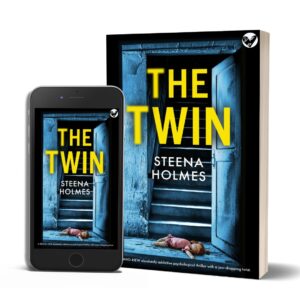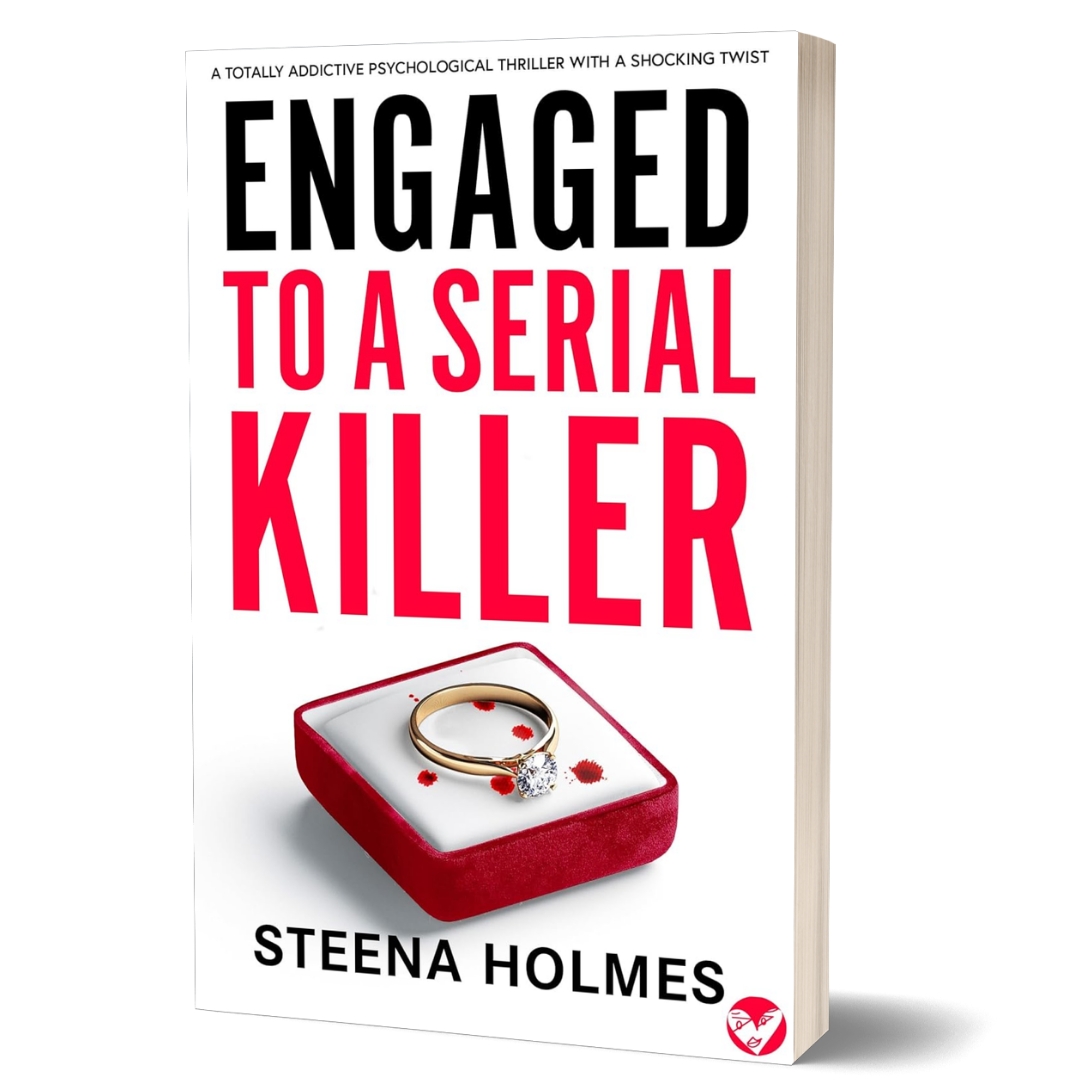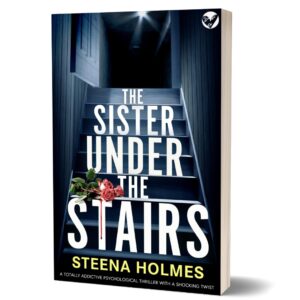WOO HOO! We have our critique! Thank you everyone who submitted their samples! I’ve kept the sender as confidential just in case – but if this is your story (hint hint – wink wink) and you’d like to ask Becca questions on her critique – please feel free in the comments. Otherwise – if you have questions and want to keep it personal – send me an email and I can forward it on!
I strongly encourage everyone to really read this critique and think about how you can apply this to your writing. I know I learned some stuff! And … at the end, let’s keep the conversation going on – and if you comment, you could win a copy of The Emotional Thesaurus!
Today’s critique comes from Becca 🙂
~~~
Steena, thanks so much for letting us invade your blog today. And thanks to your faithful followers, for sharing their excerpts with us so we can devour them offer our suggestions for improvement. Because the critiques ran long, we decided to focus on two samples; we apologize if you sent something in and we weren’t able to use it. Also, since this is an Emotional Workshop, we’ll only be looking at the emotional portions of these samples and using The Emotion Thesaurus to show how the characters’ feelings can be more effectively conveyed.
Now that the disclaimers are out of the way, let’s get started! Today’s scene is from SINS OF EVE.
Sample:
The banging of her door against her dresser startled her. Eve used her sheet to wipe her eyes and turned toward the door. A ghostly figure holding a lit candle moved closer in the dark.
“Eve, why are you making such a racket in here? You woke me, you ungrateful child.”
Eve sat up on her bed and wiped her tears. Mother’s brusque entrance yanked Eve from her self-pitying frustration. “I’m sorry I woke you, mother. I must have had a bad dream.” The bad dream was much too real.
“How do expect to do well in school if you don’t sleep well?”
“It’s summer, mother. School is out. Don’t worry, it won’t happen again,” Eve sighed.
“You are an insolent girl, Eve Lyn Carrington. Stop your blubbering and quiet down, before you wake the rest of the house.” Mother raised her hand to strike Eve.
Becca’s Response (comments in blue, possible rewrites in red):
The banging of her door against her dresser startled her. Eve used her sheet to wipe her eyes and turned toward the door. A ghostly figure holding a lit candle moved closer in the dark.
I love her using the sheet to wipe her eyes—a great specific indicator that gives us a clue about her age and emotional state. One thing I’d like to work on, though is the emotion (startled) that’s stated outright in the first sentence. Telling Eve’s feelings creates distance between her and the reader; instead, you want to show the emotion, especially in the very first sentence of the scene. Since the purpose of The Emotion Thesaurus is to help writers show their character’s feelings more clearly, I’m going to illustrate how to use this resource to better convey Eve’s emotion. To show Eve being startled, I turn to the SURPRISE/SHOCK entry in the ET, since startled and surprised are pretty much synonymous in this context. Looking through the physical signals, I find shuffling back a step or two. I like this cue for Eve, but because she’s in bed, I’ll tweak it to show her interacting with her surroundings:
The door banged against the dresser. Eve jerked awake and blinked in the dark. A ghostly figure with a lit candle drifted into the room. Eve scrambled upright, kicking at the sheets that entangled her.
“Eve, why are you making such a racket in here? You woke me, you ungrateful child.”
Eve sat up on her bed and wiped her tears. Mother’s brusque entrance yanked Eve from her self-pitying frustration. “I’m sorry I woke you, mother. I must have had a bad dream.” The bad dream was much too real.
Here’s another example of Eve’s emotional progression being explained rather than shown. We’re told that Eve was feeling self-pitying frustration, but what is she feeling now? This scene is a great opportunity to show us the dynamic between her and her mother. Does Eve respond with resignation? Relief? Fear? Her emotional response to her mother’s entrance will tell us loads about their relationship. My guess (based on the entire sample, which I didn’t include here) is that her initial response is relief that it’s Mother and not her father coming in, since Mother is the lesser of the two evils. So I go back to The Emotion Thesaurus and check out the RELIEF entry. Slumping posture catches my eye, but again, it needs tweaking to reflect Eve’s personality and surroundings.
“Why are you making such a racket, Eve? You woke me, you ungrateful child.”
Eve’s grip on her pillow relaxed. “I’m sorry I woke you, Mother. I must have had a bad dream.”
“How do expect to do well in school if you don’t sleep well?”
“It’s summer, mother. School is out. Don’t worry, it won’t happen again,” Eve sighed.
“You are an insolent girl, Eve Lyn Carrington. Stop your blubbering and quiet down, before you wake the rest of the house.” Mother raised her hand to strike Eve.
Okay. I’m feeling a disconnect here because Mother’s actions don’t seem to fit her words. She appears to be speaking calmly, then she’s on the verge of violence, all without raising her voice. Her emotional arc is inconsistent. Reading on, I see that she’s crazy, but this is important information shouldn’t have to be told after the fact. We need to experience Mother’s instability, through her actions, her dialogue, and Eve’s response to her. Right now, Mother’s expressing no emotion at all. Show us her volatility, and Eve’s response, and you’ll show that mom is insane without having to explain it, and her actions will ring true.
“Why are you making such a racket, Eve? You woke me, you ungrateful child.”
Eve’s grip on her pillow relaxed. “I’m sorry I woke you, Mother. I must have had a bad dream.”
Mother’s voice pitched upward, inching toward shrill. “How do expect to succeed in school if you don’t sleep well?”
Eve’s body stilled. Mother’s hands were twitching. The whites showed all the way around her eyes and her breath made that wheezy in-and-out sound. Eve’s fingers dug into the pillow and she tried to speak calmly. “It’s summer, Mother. School is out.”
“You are an insolent girl, Eve Lyn Carrington!” Her mother’s shriek lodged in Eve’s ears and started them pounding. “Stop your blubbering and quiet down before you wake the rest of the house!” Mother flung up her hand.
With a moan, Eve steeled herself for the blow.
~~
Well, these are my thoughts, for what they’re worth. I really believe that by showing the emotion, you have the opportunity to create a much stronger connection between your reader and your characters. And that’s always a good thing. Thanks so much for sharing. I hope you find something useful here that you can apply to your writing!
~~
 Becca Puglisi is one half of The Bookshelf Muse blogging duo, and co-author of The Emotion Thesaurus: A Writer’s Guide to Character Expression. Listing the body language, visceral reactions and thoughts associated with 75 different emotions, this brainstorming guide is a valuable tool for showing, not telling, emotion. The Emotion Thesaurus is available for purchase through Amazon, Barnes & Noble,iTunes, and Smashwords, and the PDF can be purchased directly from her blog.
Becca Puglisi is one half of The Bookshelf Muse blogging duo, and co-author of The Emotion Thesaurus: A Writer’s Guide to Character Expression. Listing the body language, visceral reactions and thoughts associated with 75 different emotions, this brainstorming guide is a valuable tool for showing, not telling, emotion. The Emotion Thesaurus is available for purchase through Amazon, Barnes & Noble,iTunes, and Smashwords, and the PDF can be purchased directly from her blog.
 The Emotion Thesaurus: A Writer’s Guide to Character Expression is a writer’s best friend, helping to navigate the challenging terrain of showing character emotion.
The Emotion Thesaurus: A Writer’s Guide to Character Expression is a writer’s best friend, helping to navigate the challenging terrain of showing character emotion.
This brainstorming tool explores seventy-five emotions and provides a large selection of body language, internal sensations, actions and thoughts associated with each. Written in an easy-to-navigate list format, readers can draw inspiration from character cues that range in intensity to match any emotional moment.
~~
Have a great idea on how to strengthen this scene? Use the comments so we can further help with this story! One lucky commenter who offers suggestions to strengthen or asks questions will win one awesome PDF copy of The Emotional Thesaurus!




I read a lot of interesting articles here. Probably
you spend a lot of time writing, i know how to
save you a lot of work, there is an online tool that creates
unique, google friendly posts in minutes, just type in google
– laranitas free content source
Well put together – just awesome – I’m glad this post went up because it happened to be very informative and refresh-shing like a glass of water with out all the strange chemicals and species … though, I always liked the taste of lead -.- (not really).
LOL – thanks LaPriest 🙂
No prob no better time to respond to an old comment.4 years later lol
Love this!! Great critique. And I must say…I have the book and it’s fabulous! Great post.
Wonderful suggestions, Becca. And I’m loving My Emotion Thesaurus 🙂
I love the suggestions given, they really “plump” up the story just where it needs it.
Thank you for this example and the changes that show the feelings not tell. It was very helpful.
OMG, I love this! It’s so much better than before and I think I can carry these examples throughout my story! Thanks for the critique tips. My Emotion Thesaurus should be here in a couple of days! Thank you, Steena, Angela and Becca!
I was so happy to help, Marcia. This was already a really interesting passage. As with most all scenes, it just needed some tweaking to make it shine. Thank you so much for volunteering! And if you have any other questions, feel free to mail me. becca.puglisi@yahoo.com
Oh, good, I’m glad my suggestions made sense. You know how it sounds so perfect in your own head, then people read it and are all, “What? That didn’t make sense to me…”? Thanks so much for sharing, Patricia, you brave soul!!
Great job on this one, Becca–you nailed it. 🙂
Excellent examples! I’ve got The Emotion Thesaurus now and am learning a great number of valuable lessons from it. Thanks!
Oh, I spelt wish as wich up above, sorry about that. There was no edit button. LOL. I noticed it and was about to change it, but my twitchy finger said sucked in and hit the “Post comment” button.
That’s fantastic, Becca. I love everything you’ve suggested, especially the mother’s hand twitching and the whites showing all the way around her eyes. (Brilliant!) Oh, and this is fantastic >>:Her breath made the wheezy in-and-out sound. (Which I could write so brilliantly.)
Now I’ll add something:
Her nostrils flaring, Mother flung up her hand.
With a moan, Eve squeezed her eyes shut and steeled herself for the blow.
The Emotion Thesaurus sounds fabulous. I’ll have to check it out. Thanks for a great blog post, Becca and Steelna. (Hey, now I’ve used the word “steel” twice. LOL.)
Thanks also to Angela Ackerman for helping Becca write that great book.
Patrica – this was fabulous wasn’t it. I like your suggestion of the nostrils flaring too 😉
These are good adds–what I love about body language is that there are just so many possibilities to show emotion, and each of us can find a unique way for our characters to reveal themselves through it. 🙂
Finally a fine example of how to apply the “show not tell” technique. I love the “inching toward shrill” line. She sounds crazed.
Karen – I agree – we hear ‘show not tell’ so often but it’s samples like this that really hit it home and show us exactly how not to tell!